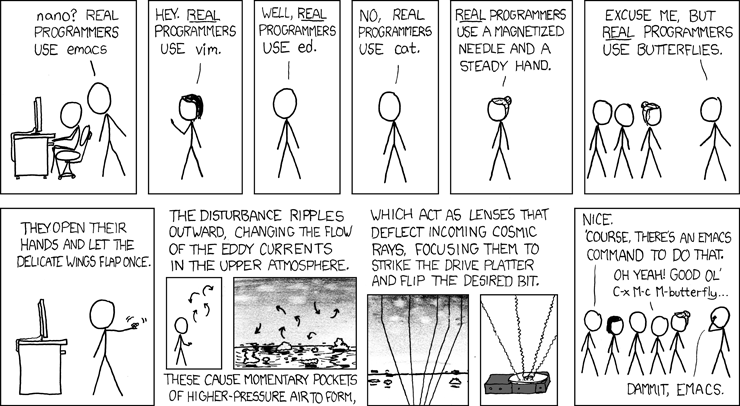I’ve been following a tweet discussion between Karl Voit and several others over the relative merits of light weight markup languages. You can get a feel for the arguments by expanding the following:
For #orgmode as a markup (w/o Emacs) the average user will definitely gets a better experience, I bet.
— Karl Voit (@n0v0id) September 19, 2017
Tweets are not, of course, a very good platform for making reasoned arguments about technical issues or anything else for that matter so Voit has pulled his arguments into a blog post in which he make the case that Org-Mode Is One of the Most Reasonable Markup Language to Use for Text. As I’ve said many times, I do almost all my writing these days in Org mode so I already agreed with his conclusion but Voit makes a good case for his conclusion.
He looks at several light weight markup languages such as Org mode, Markdown, AsciiDoc, Wikitext, and reStructuredText and identifies how Org is superior to them. He notes that Org is better even without Emacs because you can write it in any editor and use tools like pandoc to get it into whatever final form you need.
Of course, the right tools make all the difference and using Org markup from within Emacs is a real win. Still, even some people who prefer not to use Emacs, write Org markdown in some other editor and convert it using pandoc. Even if you don’t already agree that Org syntax is the best, be sure to read Voit’s post. He’s got some good arguments and may convince you.

